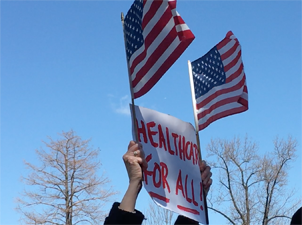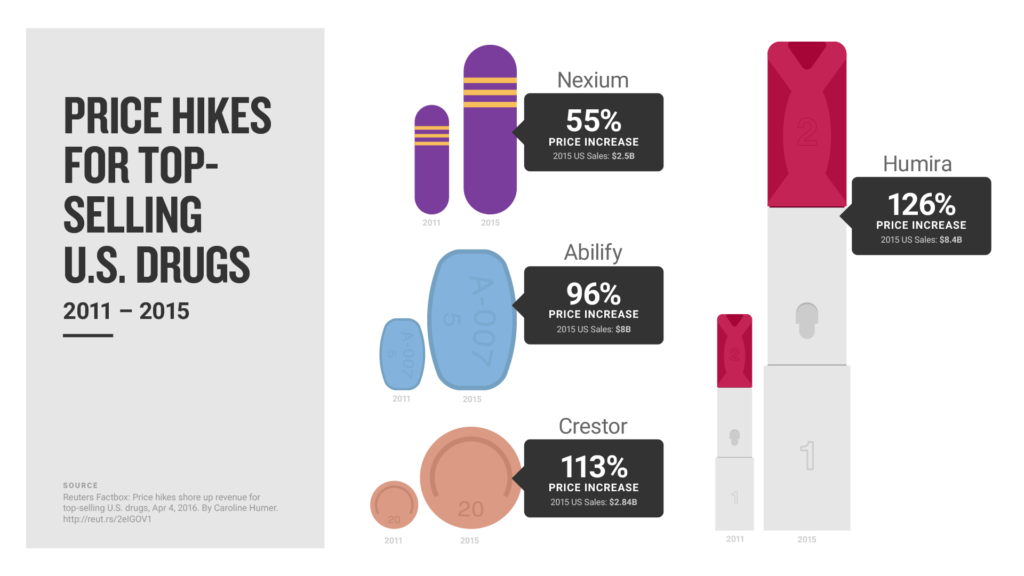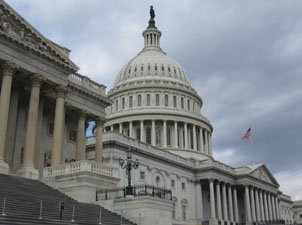
Health Care Update: The Lower Health Care Costs Act
Siena Ruggeri
August 7, 2019
With 2020 looming, both chambers of Congress are on a mission to show voters they’re serious about reforming health care and lowering costs. The Lowering Health Care Costs Act represents the largest effort on health care in the Senate this session. The Health, Employment, Labor, and Pensions Committee has collected a wide variety of health care proposals and assembled them into one sweeping piece of legislation. The legislation is a package of bills containing 54 bipartisan proposals from 36 Democrats and 29 Republicans. The package has a huge scope—it includes provisions regarding surprise billing, drug pricing, extensions of existing health care programs, health equity research, raising the tobacco age, and cybersecurity with medical records. All of these issues relate to our Mend the Gaps health care agenda. The bipartisan nature of these bills means that there is potential for this legislation to make it through the Senate and onto the House. The bill is divided into five sections.
Section I: Ending Surprise Billing
- Requires that emergency health care charges to a patient are counted toward the patient’s in-network deductible
- Patients are held harmless from surprise medical bills. Patients are only required to pay the in-network cost-sharing amount for out-of-network care, including emergency services
- Patients must be given notice of out-of-network care
NETWORK Analysis: The legislation moves in the right direction on surprise billing by ensuring patients are not victimized in a billing debate between providers and insurers. It’s important to note that an individual has to have insurance to access these protections. For the millions of uninsured and underinsured in our country, there’s still not a safety net for these exploitative billing practices.
Section II: Proposals to Lower Drug Costs
- Helping companies speed drug development through drug database
- Increases transparency for patent data on biologic products
- Prevents the abuse of citizen’s petitions to delay the production of low-cost biosimilars
- Clarifies that drugs like insulin will not be granted market exclusivity past 2020
- Eliminates the first come first served drug pricing loophole that slows the production of lower-cost drugs
- Creates an FDA website to educate consumers on biologic products
- Eliminates the market exclusivity loophole created by patent evergreening
- Modernizes labeling of generic drugs
- Eliminate first come first served drug pricing loophole
- Requires drug manufacturers to submit public justifications of price increases of over 10% in one year
NETWORK Analysis: These proposals are the necessary first step to lowering drug prices. While the legislation implements transparency measures and reforms the pharmaceutical industry’s abuse of the patent system, there still needs to be action taken on unwarranted price spikes. Drug companies are still able to gouge prices as they wish, with no accountability. This also does not address the fact that the government is not allowed to negotiate drug prices on behalf of Medicare Part D patients. Without these checks on the drug industry’s power, drug prices will stay high. We encourage the Senate to take up the PRICED Act, the Doggett bill, and the SPIKE Act to address these root causes.
Section III: Transparency Measures
- Healthcare providers have to provide summary of services to patients
- Doctors/insurers must provide price quotes to patients
- Ban anti-competitive terms in hospital contracts
- Designation of a nongovernmental, nonprofit transparency organization to lower Americans’ health care costs
- Requires health plans to have up-to-date directories of their in-network providers
- Bans pharmacy benefit managers for charging more for drugs than they paid for drugs (spread pricing)
- Requires a GAO study on profit-sharing relationships between hospitals, contract management groups, and physician and ancillary services, and the Federal oversight of such relationships
NETWORK Analysis: These transparency measures are a good first step to shedding light on the exploitative practices of many actors the health care industry. While these reforms are beneficial for those with strong health insurance plans, more attention needs to be devoted to expanding Medicaid and affordable health coverage to those who need it most. Even if providers are transparent about costs, those costs are often unattainable for low-income people.
Section IV: Public Health
- Reauthorizes community health centers for five years with flat funding
- Reauthorizes the Teaching Health Centers Graduate Medical Education Programs and the National Health Service Corps for five years
- Reauthorizes the Special Diabetes Program for Type 1 Diabetes and the Special Diabetes Program for Indians for five years
- Provides competitive grants for maternal mortality prevention
- Provides competitive grants for perinatal quality collaboratives
- Commissions a study on trainings to reduce and prevent discrimination in health care
- Establishes a grant program for the training of health care professionals working in prenatal care, labor care, birthing, and postpartum care to reduce and prevent discrimination, including training related to implicit biases
- Raises minimum age for tobacco products to 21
- Provides grants to improve technology for medically underserved areas
NETWORK Analysis: We applaud the extension of these crucial human needs programs for a more sustainable timeline of five years. This prevents these programs from facing lapses in funding due to slow congressional action. While the first step is to reauthorize programs like CHCs, these facilities have grown significantly in the past 10 years and are in need of more funding. We encourage the Senate to pass the CHIME Act, which would increase mandatory funding for CHCs over the next five years. These public health programs are crucial to the social safety net and serve communities that would otherwise go without preventative health care services.
We applaud the inclusion of funding for grants and trainings on issues of health equity. In order to address how our health system reinforces racism and other oppressions, we have to support further research and provide resources to fight unconscious bias in the medical profession. Congress needs to continue taking action for health equity at the federal level.
Section V: Improving Health Information
- Requires health insurers to make claims data, in-network practitioners, and expected out-of-pocket costs available to patients
- Incentivizes health care entities to adopt strong cybersecurity practices
- Gives patients better access to their medical records
NETWORK Analysis: Our health information is highly vulnerable to cyber-attacks. Steps must be taken to ensure medical records remain private.
Conclusion
This legislation shows that there is momentum in the Senate to address the causes of high health care costs. While we wish there was a more robust effort to address ACA sabotage, access to affordable coverage, and the root causes of high prescription drug prices, this package of legislation offers some hope that Congress will make some progress on addressing health care issues this session. We hope to see this legislation paired with the strong drug pricing reforms detailed in the Senate Finance Committee’s Prescription Drug Pricing Reduction Act and quickly brought to the Senate floor. After the Senate returns after August recess, we expect to see this legislative package to be voted on in the fall















